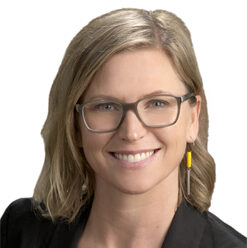
The Socio-Legal Studies program in collaboration with the Socio-Legal Studies Graduate Student Association at York University invites abstract proposals for the 2022 SLST Symposium on the theme of “Imagining the Normal in Post-Pandemic Times: Critical Socio-Legal Perspectives.”
The event will take place virtually on Thursday, April 28 at 9 a.m. and marks the fifth annual graduate student symposium.
Graduate Program Director of Socio-Legal Studies Claudio Colaguori will kick off the symposium. Five panel discussions will take place throughout the day and will include a list of presenters from a variety of disciplines to share their work, and bring together students, researchers and advocates from diverse disciplinary backgrounds to analyze and discuss critical socio-legal perspectives of the “normal” in the era of the COVID-19 pandemic.
The panel discussions will run at the following times:
9:35 to 10:35 a.m. – Panel 1: Pedagogy, Academia, Education
10:40 to 11:50 a.m. – Panel 2: Media, Representations and Visibility
12:30 to 1:30 p.m. – Panel 3: Constructions and Erasures: Gender, Sexuality, and Law
1:35 to 2:35 p.m. – Panel 4: Rights, Politics, and Policy
2:40 to 3:40 p.m. – Panel 5: Crisis, Control, and Conflict during the Pandemic

The COVID-19 pandemic has raised both individual and collective challenges that have led to social, political and economic changes. Unfortunately, the virus has also created new and exacerbated existing contemporary disparities, inequities and discriminations. As such, there is a collective desire to “return to normal.” But the symposium raises questions about what is “normal?” Is this pre-pandemic reality desirable and what did a normal world look like before the pandemic? The event will also question how society can re-envision normal in post-pandemic times, what socio-legal issues have withstood the pandemic and are carrying into the post-pandemic era, how society has and can demonstrate resilience in the face of disparity, inequity and discrimination, and how the pandemic highlighted questions of nonconformity, deviance and categorization.
A closing keynote address will be given by Dayna Nadine Scott, a socio-legal scholar and activist who engages with community-based methods in areas of resource extraction, Indigenous resistance and self-governance, and environmental justice, among others. An associate professor, Scott is cross-appointed between the Faculty of Environmental Studies & Urban Change and Osgoode Hall Law School. She was appointed as York Research Chair in Environmental Law & Justice in the Green Economy in 2018. Her current project examines transitions toward sustainable economies to support Indigenous jurisdiction, laws, and systems of governance.
Event registration is required.
